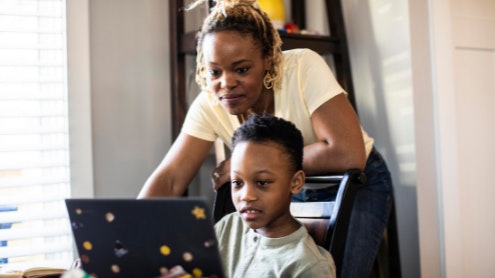Homepage
•
Learning Library
•
Blog
•
Educators: Help Parents Talk to Their Kids About Tech
Expand breadcrumbs
Expand breadcrumbs
- Learning Library
- Blog
- Educators: Help Parents Talk to Their Kids About Tech
- Homepage
- •
- Learning Library
- •
- Blog
- •
- Educators: Help Parents Talk to Their Kids About Tech
Educators: Help Parents Talk to Their Kids About Tech
By Carrie Rogers-Whitehead
November 16, 2021








